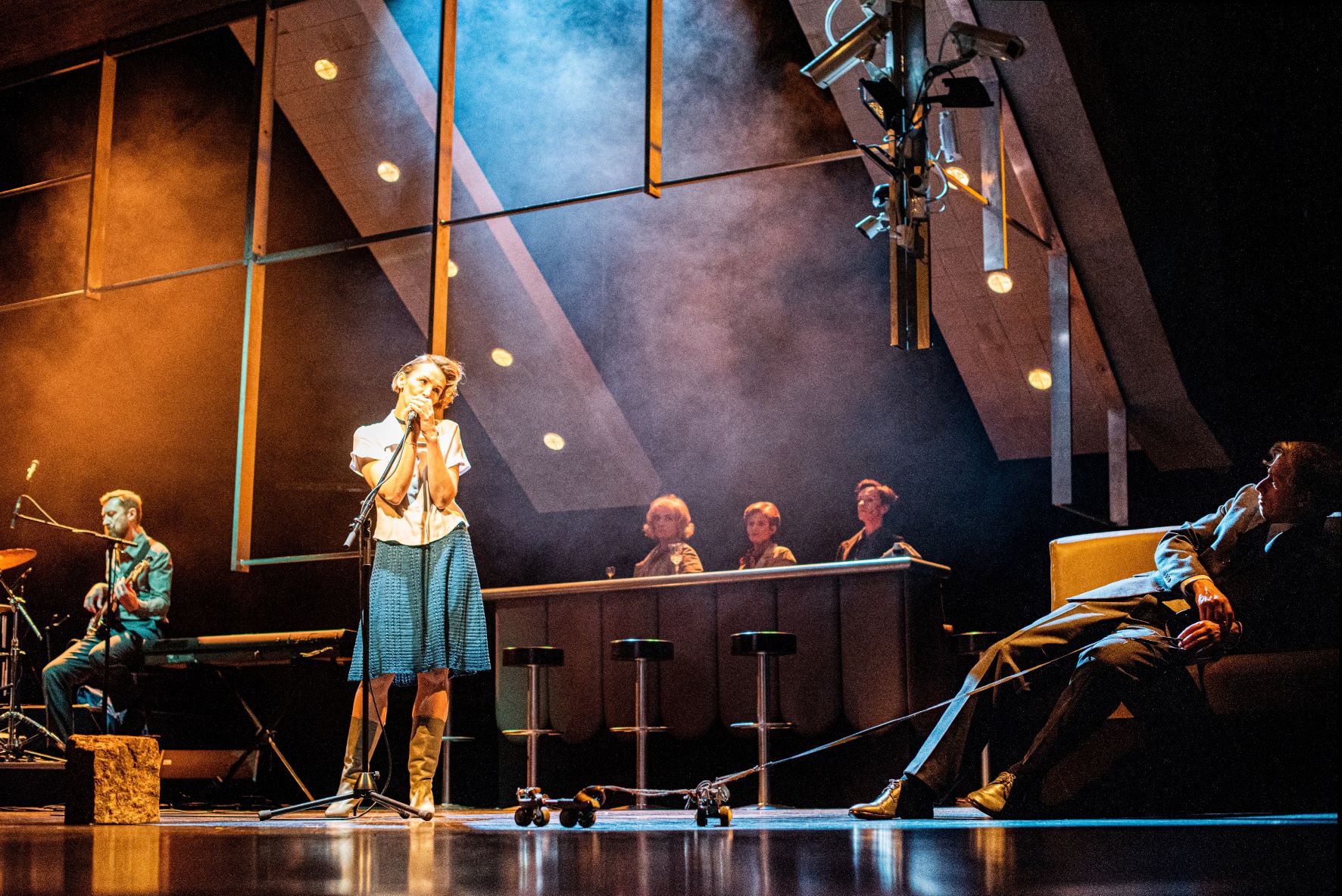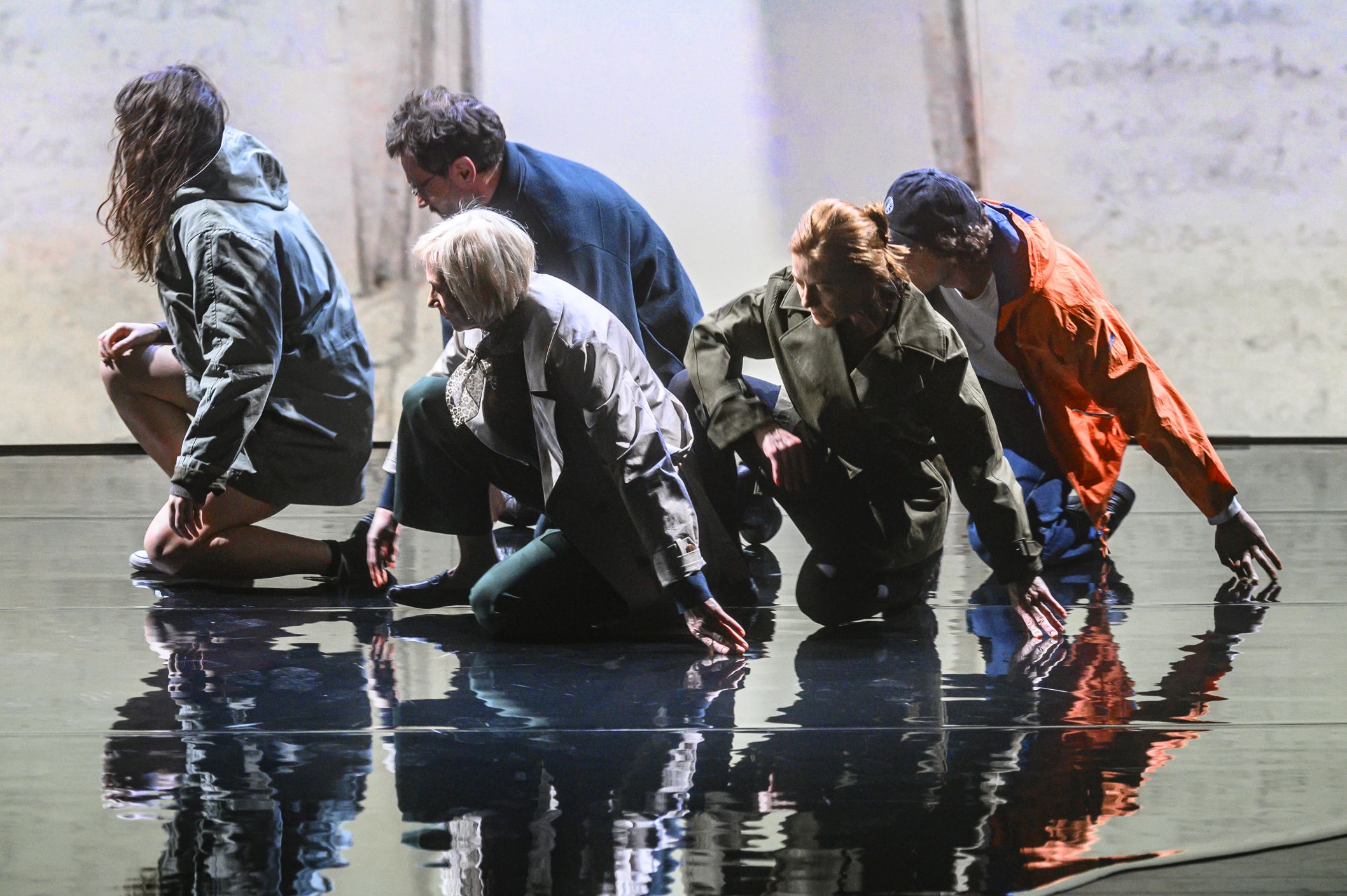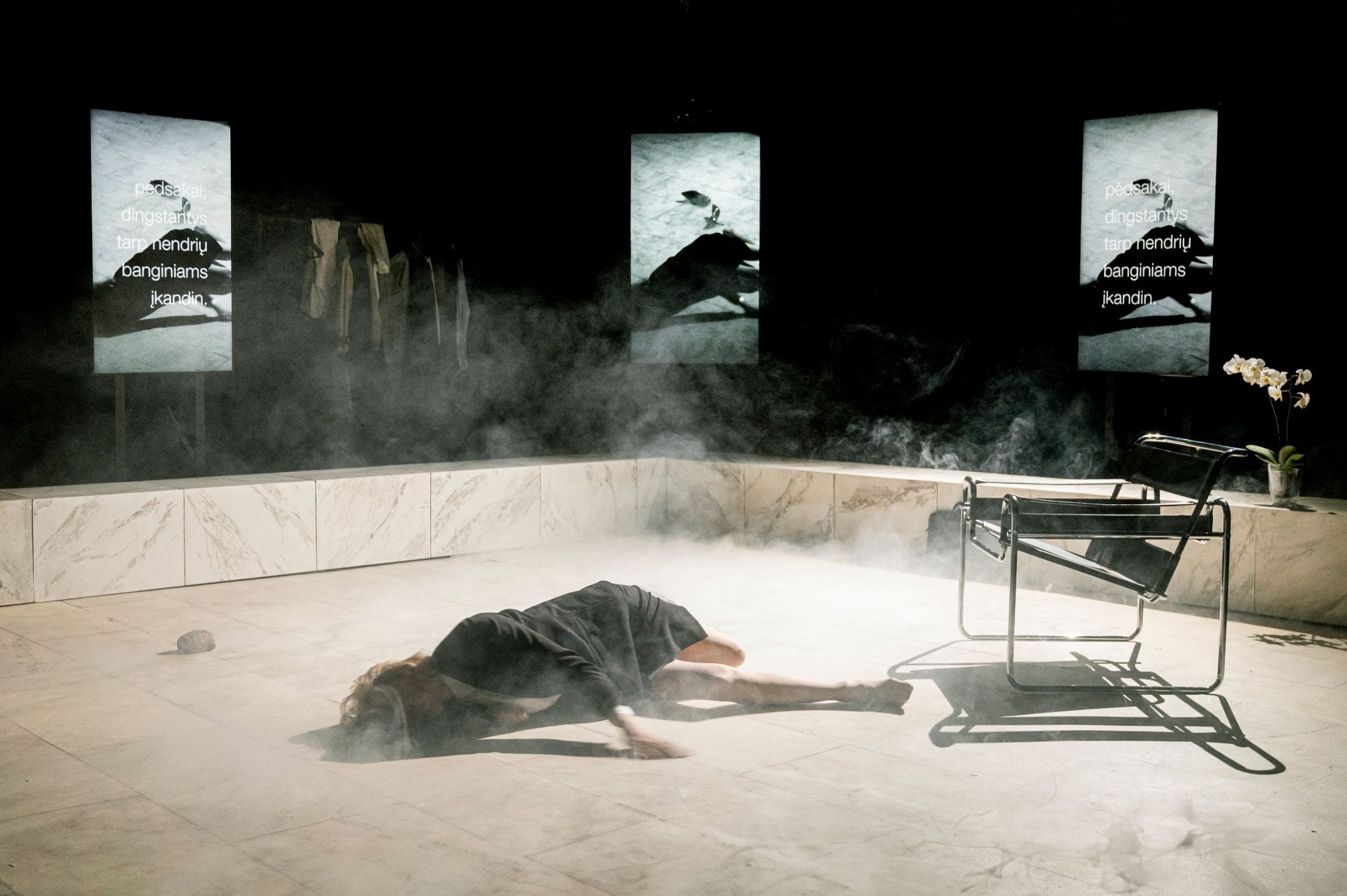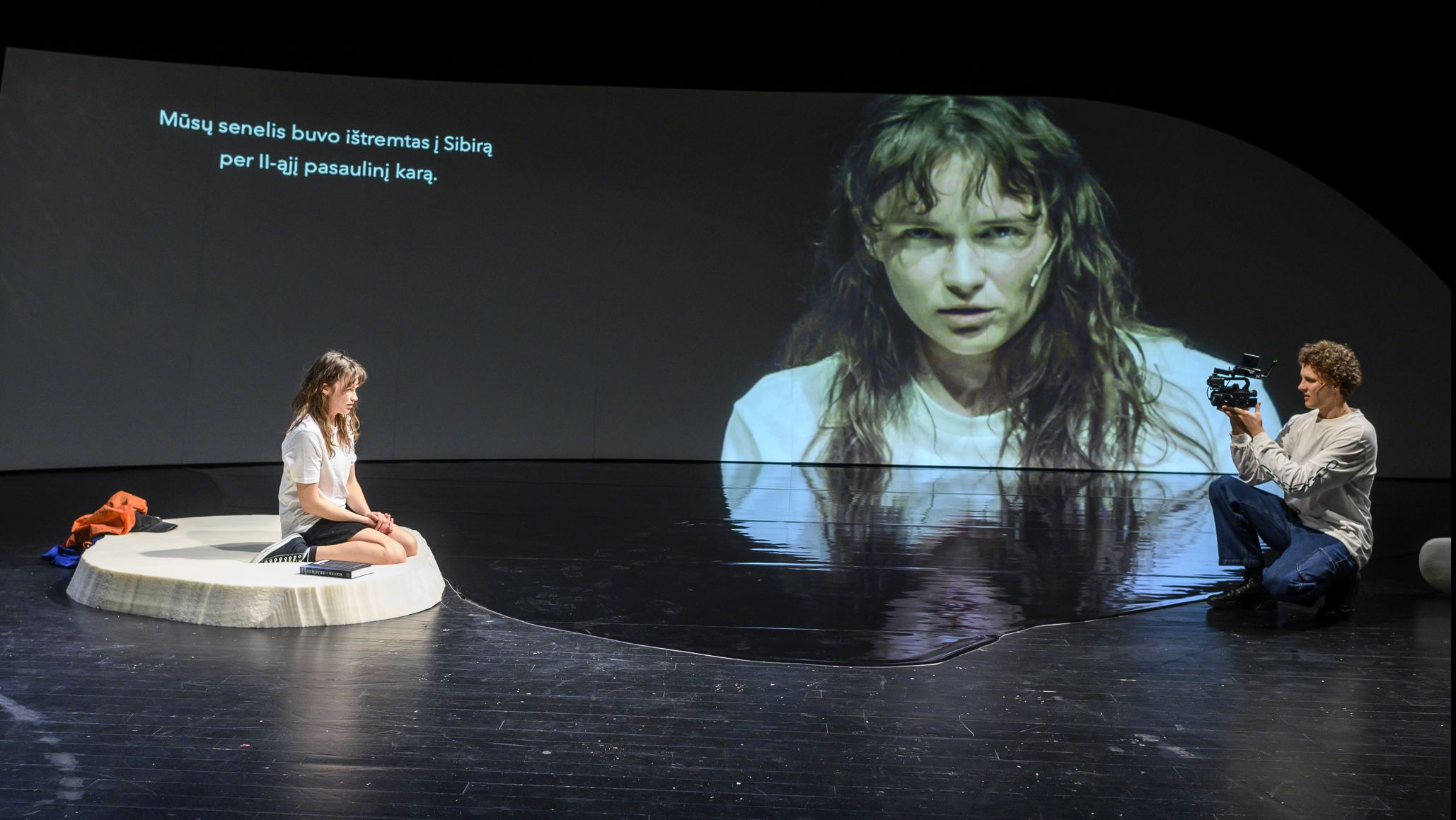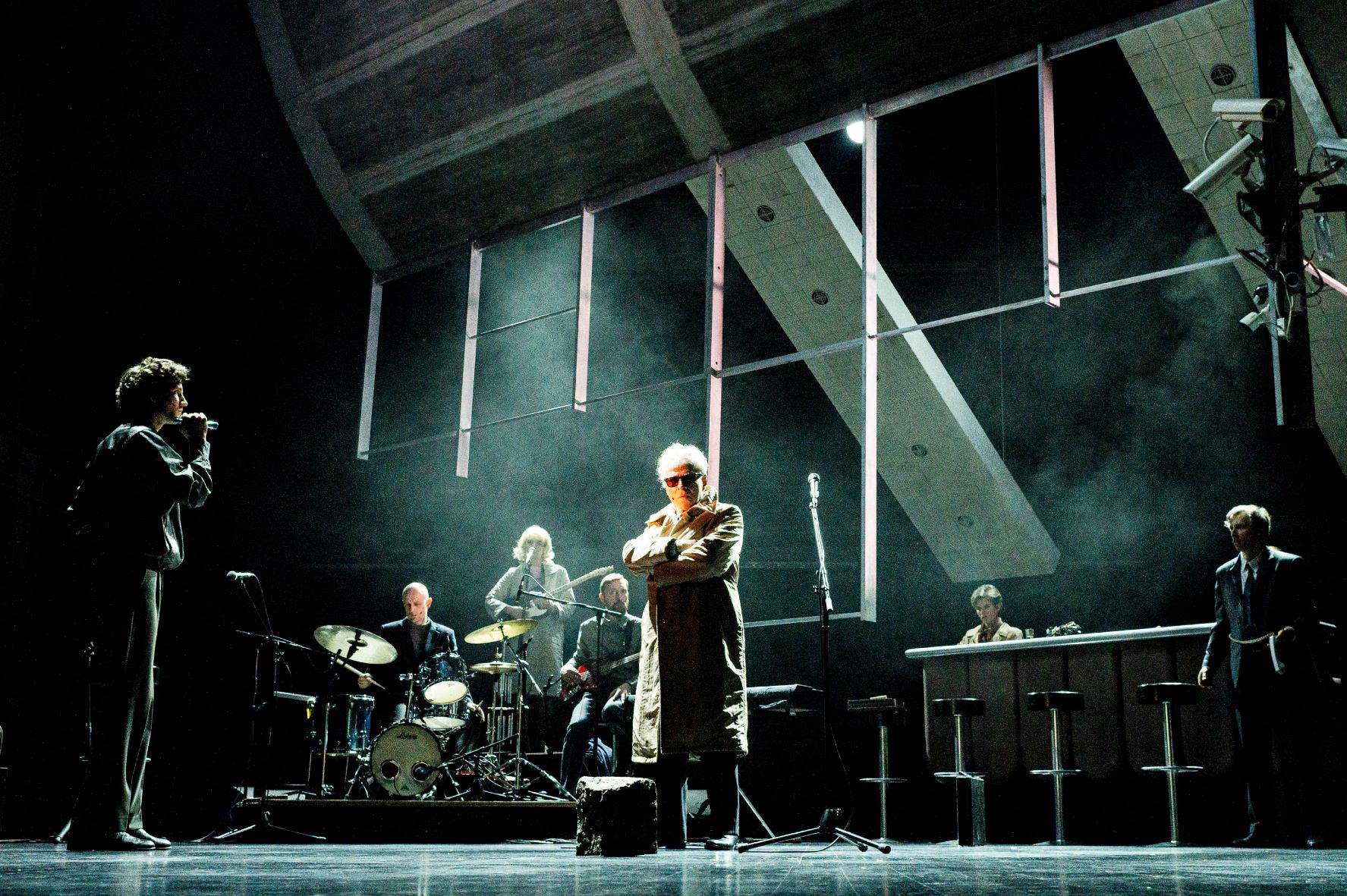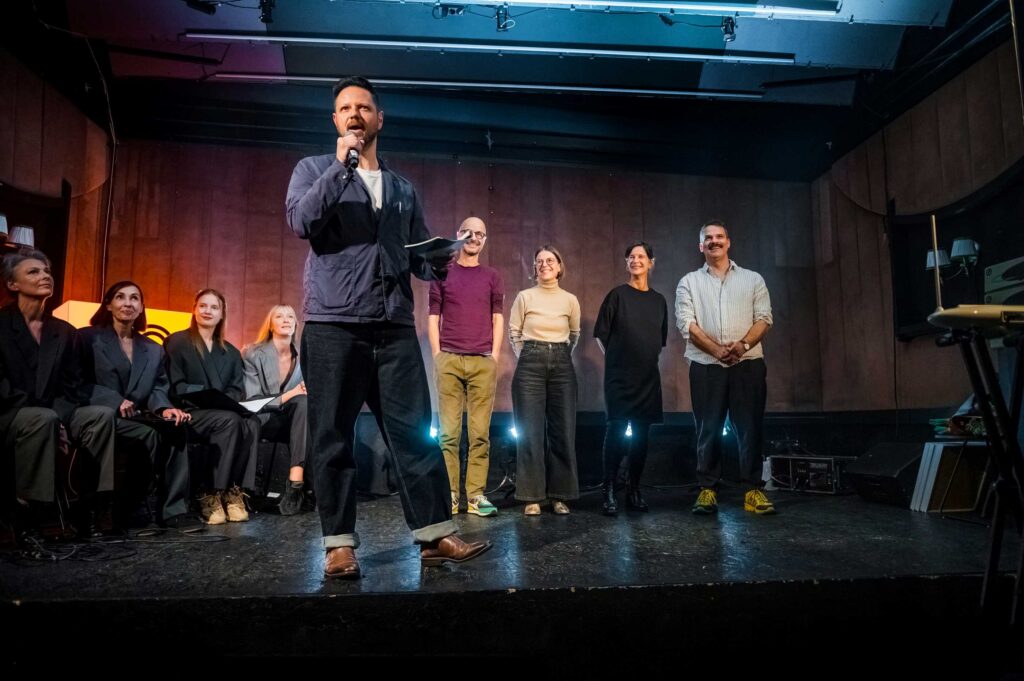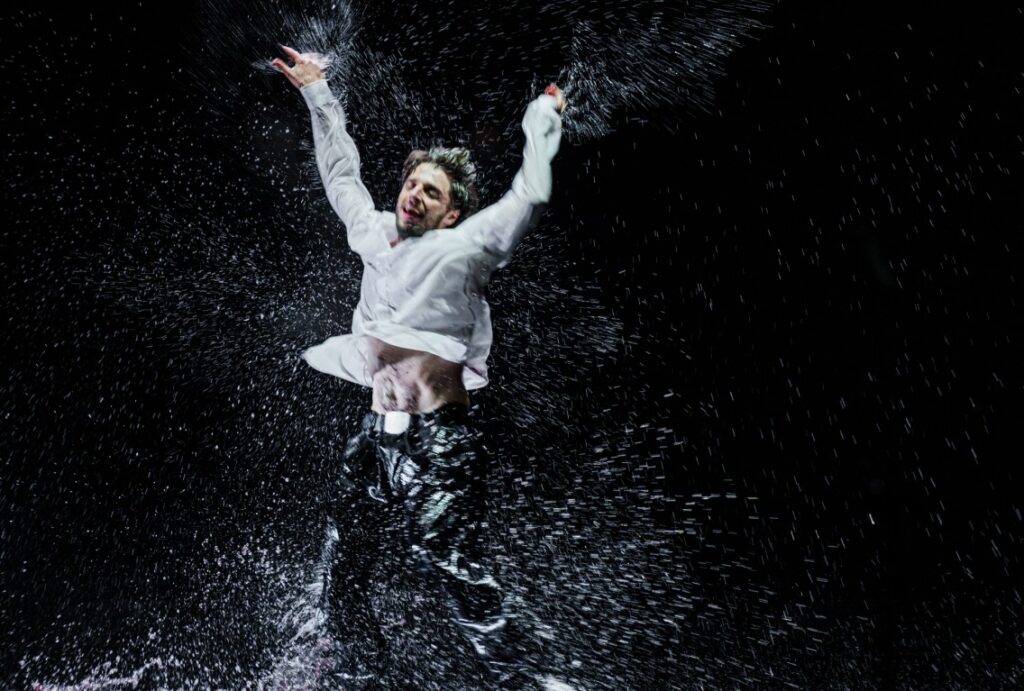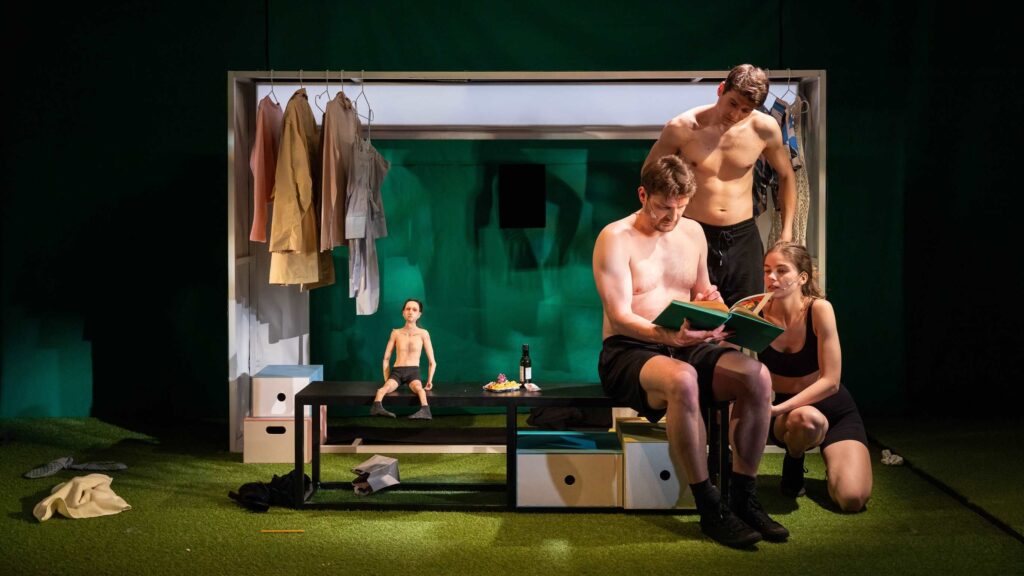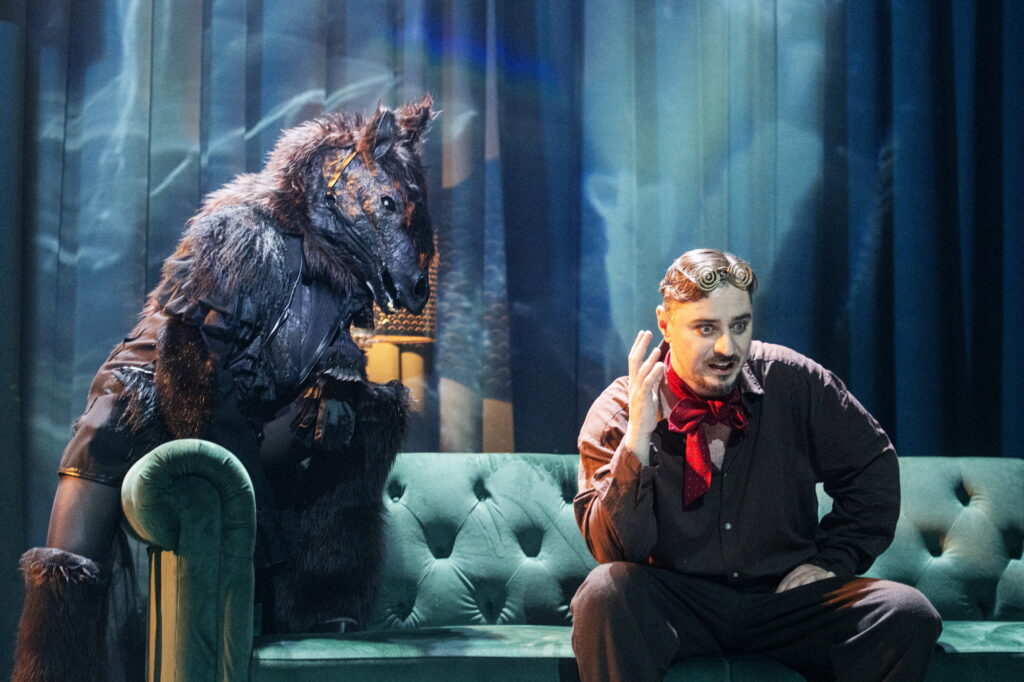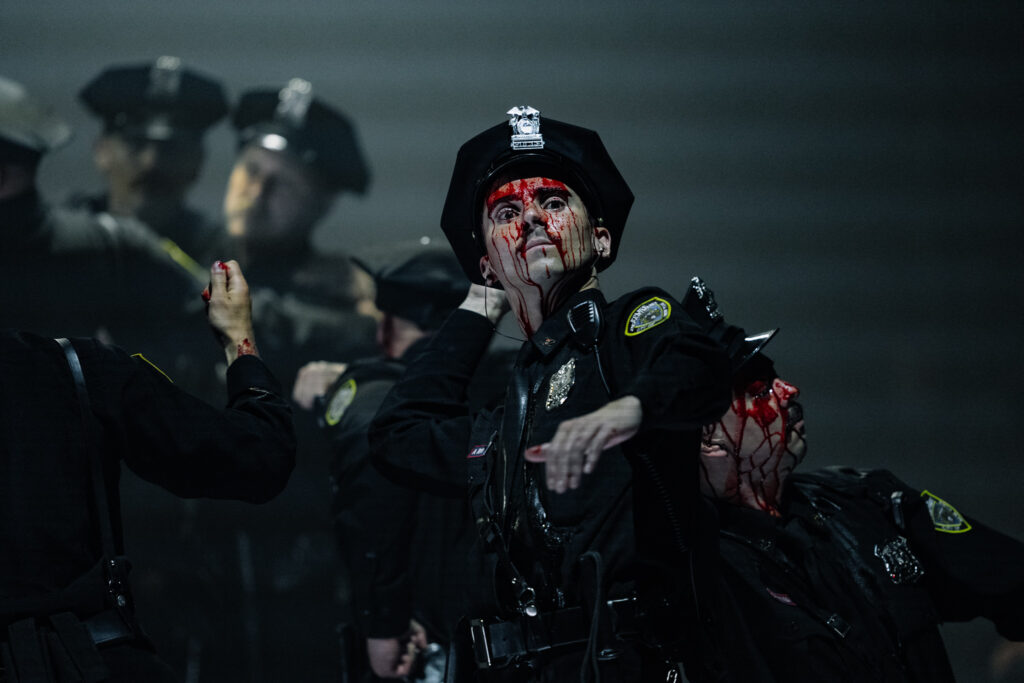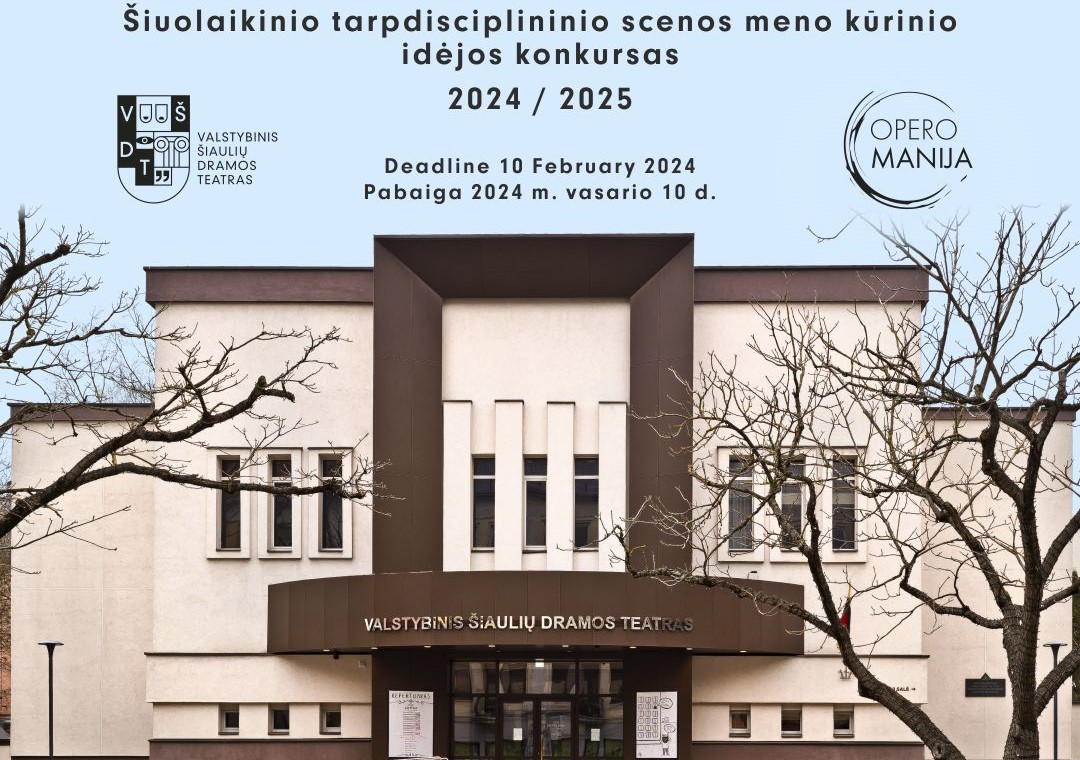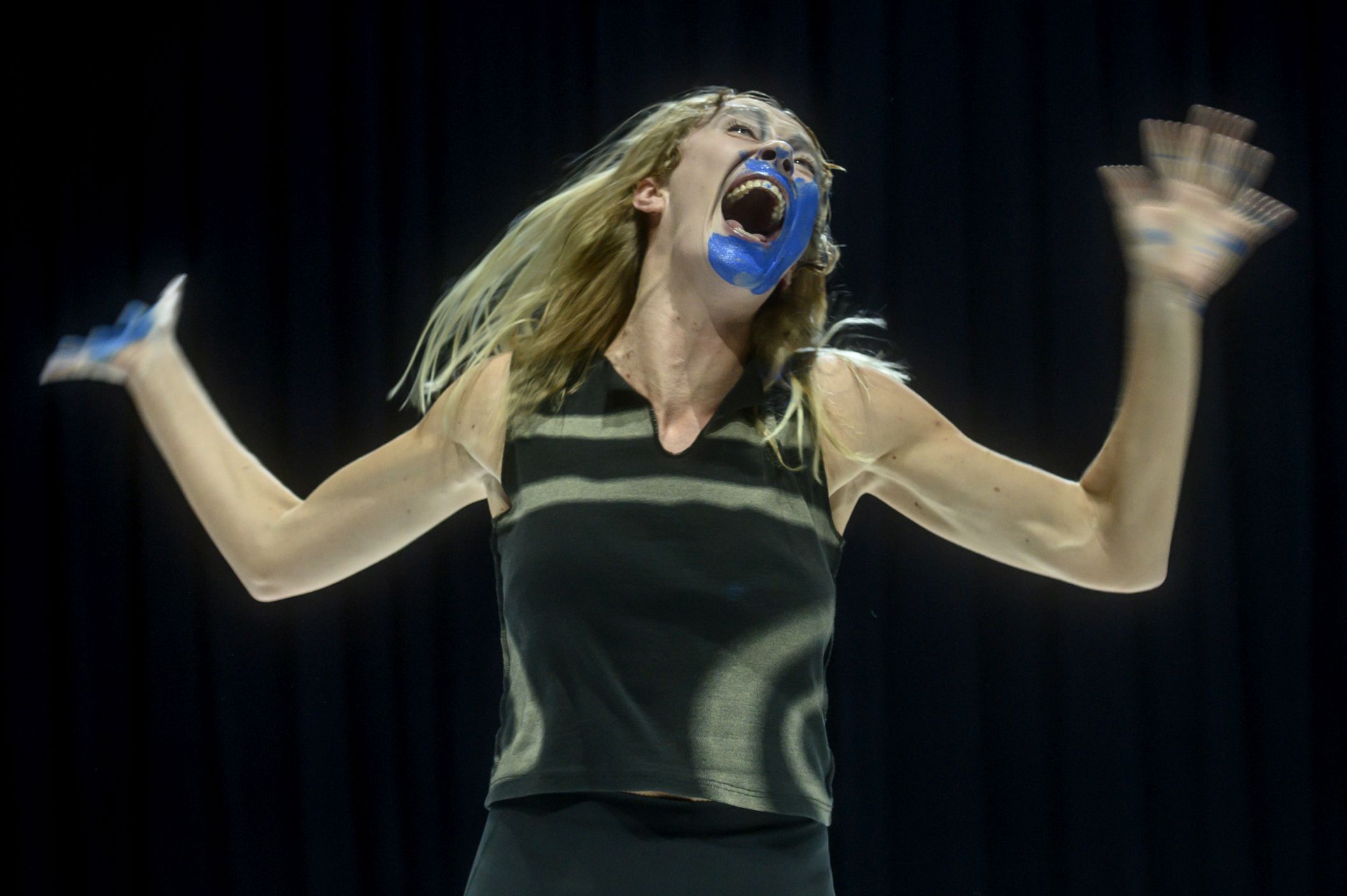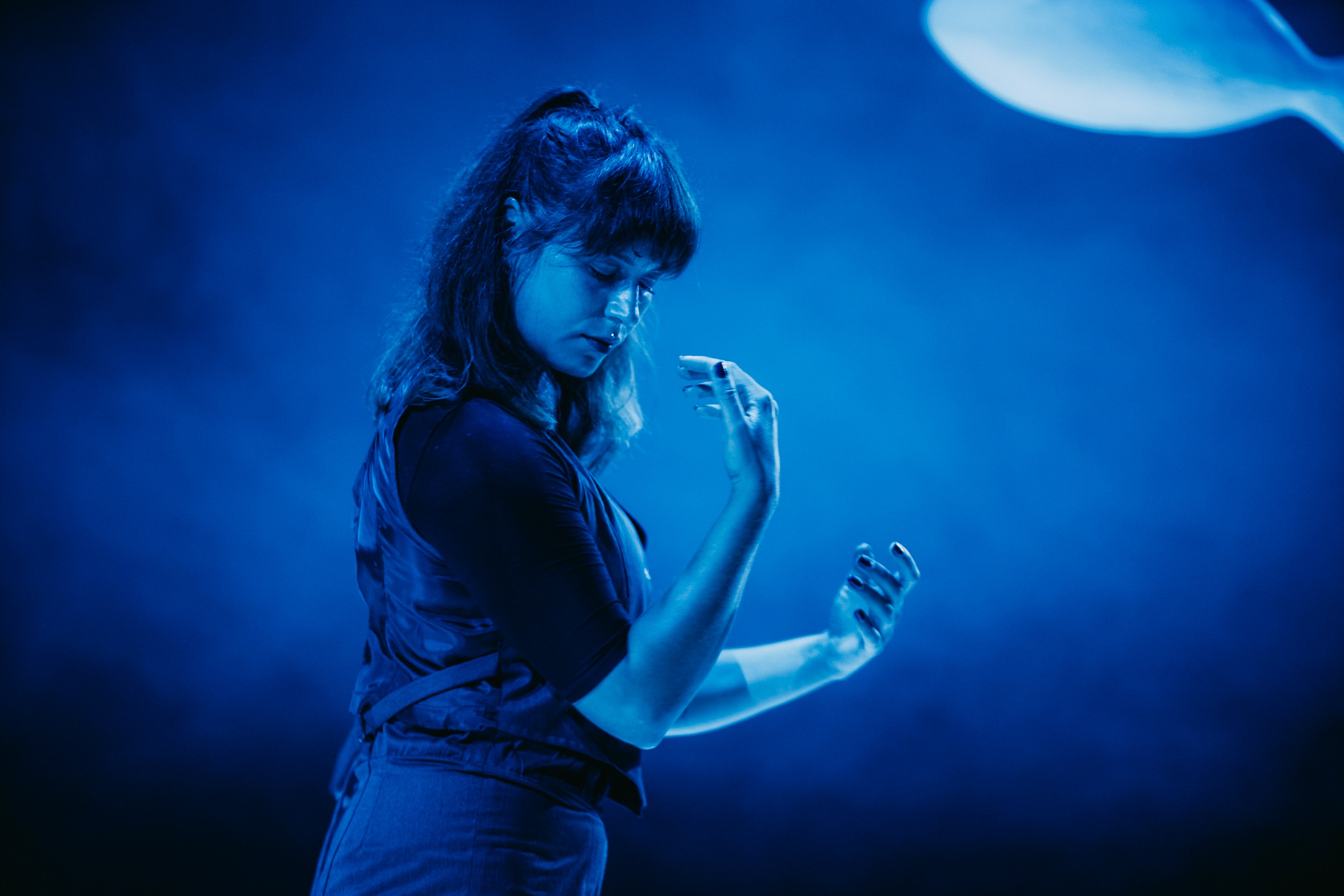In 2023, the Director's Award in the Golden Cross of the Stage (the annual Lithuanian theatre awards) ceremony was exceptional, and not only because of the lack of equal competitors. The award was given to a young creator who is also a woman director. Twenty-nine-year-old Eglė Švedkauskaitė became only the second woman to be awarded in the category (before her, Yana Ross had won the award twice), and the youngest director to jump higher than some older and more accomplished directors (although this time, most of the nominees belonged to the younger generation).
Švedkauskaitė graduated from the Lithuanian Academy of Music and Theatre in 2018. The next year she spent some time in Warsaw, participating in creative laboratories and workshops. At the end of the year she started a residency at the State Youth Theatre (SYT) in Vilnius, where she put on her first theatre production as a guest director. She has been staging shows in state theatres since then, but rarely in the private sector. In parallel, in 2019 she started working as a directors' assistant at the Lithuanian National Drama Theatre (LNDT). In 2023, together with Antanas Obcarskas and Kamilė Gudmonaitė, she became one of the three artistic directors at the theatre.
Švedkauskaitė's background, awards and other forms of recognition are not the main reason why I find it important to reflect briefly on her work. The basic reason is that she is exceptionally clear in her view of what she wants to research and reflect in her creative work. She is deeply interested in her generation's attitude towards the environment, the country's and the nation's history, previous generations, and their influence on the current one. She dives into these areas carefully, consistently, and without showing off. So she is very responsible.
Švedkauskaitė's career as an independent director started at the SYT, where she staged the play A Man from Fish by the Russian playwright Asia Voloshina. The story takes place in an old Soviet-era apartment, where people of different generations try to maneuver between intimacy in their private lives and the need to be part of the community. It looks like a similar scenario for her next production at the same theatre, the awarded Memoirs of a Young Man, based the novel by the famous Lithuanian writer Ričardas Gavelis (1950-2002).
The story portrays the deep layers of the system which Lithuanians had to bear and / or adapt to during the Soviet occupation. At the centre of the show is a young man, Levas, who honestly and naively devotes himself to communist ideas. He serves those who are charged with destroying the enemies of Soviet ideology, and blindly defends what is written in communist documents, without realizing that he is actually harming intellectual society. He is a person who plays according to rules that exist on paper, but not in reality.
It is significant that Švedkauskaitė found a form which satisfied spectators of different generations and with different expectations. Those who spent a few decades in occupied Lithuania expressed their fascination and excitement: the young creator caught perfectly the atmosphere of the times, and the creative team highlighted precisely recognizable phenomena, together with typical relationships and human archetypes. Meanwhile, those who were born close to or after the day Lithuania regained its independence (11 March 1990) found the production intellectual and stylish. Furthermore, Memoirs of a Young Man could be read as a source for understanding the current situation and common behavior of our society. Shades of grey and brown, sometimes coloured with a warm yellow light, actors from various generations who also play and sing live on the stage, the slowness of physical processes, followed by fast changes in characters' behavior and attitudes; furthermore, there is a recognizable scenography (the front of the Palace of Sports, a building in the style of Soviet brutalist architecture, which up to the 2000s was the setting for important sports and cultural events in Vilnius). All this let spectators lose themselves in the atmosphere of the not-so-long-ago period, and provided the opportunity to feel what was happening, instead of imagining things based on other people's stories.
Memoirs of a Young Man could have been 'an accidental success'. However, further productions by Švedkauskaitė show that she has found an important direction in her creative life. Although her later works were not received as favourably, in her next shows the young director researched Lithuanian history by analysing encounters between people from different generations, and looking at it through a therapeutic lens. She does not indulge in therapy on stage, but tries to get into the topic slowly, carefully, and avoiding portraying characters as positive or negative (but trying to understand everybody).
For these reasons, her shows sometimes seem not to take a position. Švedkauskaitė does not openly express one, but creates a situation for the audience to rethink theirs. In Fossilia, she tries to illustrate and reflect a world where some people avoid recalling their past, while suffering the consequences and making their family members feel them as well.
Staged at the LNDT in 2023, Fossilia presented a situation where older generations refused to face up to the past and take responsibility. The previous year, in 2022, at the same theatre, Švedkauskaitė staged another show in which a middle-aged woman had to face up to a past which for she was not responsible. Suplhur Magnolias is based on a play by the Estonian actor and playwright Martin Algus. It is a story about a woman who has to take care of her sick father who left her (and her mother) when she was little. The obligation to deal with an unjust situation makes the woman see her life from a different perspective. And even though she does not start loving her father, she rethinks her daily life, and starts making important changes. The most interesting thing about Sulphur Magnolias is the inner development of the main character, who is forced to go against her choices, and make other ones which make her life so much better.
In all her shows, Švedkauskaitė appears to be interested in actors' personalities and their development on the stage. This could also be said about the performative act Gazing at One Another, which brings together three actresses (the prima donna Eglė Gabrėnaitė, a unique actress Elžbieta Latėnaitė, who is also well known in social media, and Justina Mykolaitytė, who at the time of the première was still setting out as an actress) to interpret the story of Veronika Šleivytė (1904-1998), a progressive Lithuanian photographer whose pictures during Soviet times included references to homosexual life and realities. Inspired by Šleivytė's personality and work, the creative team made a show about opening up their true selves, as far as they felt ready to do so. Surprisingly, the actresses were able to express their own characters and souls without exposing their egos. Or almost all of them.
All in all, Eglė Švedkauskaitė seems to know perfectly where she is going artistically, and has a lot of opportunities to develop her work by working with different actors and different companies, and in different fields. And although she does not always succeed artistically, her wish to truly understand history and its legacy appears like a promising way of creating a personal and unique theatrical language.
Publikaciją finansuoja Lietuvos kultūros taryba

